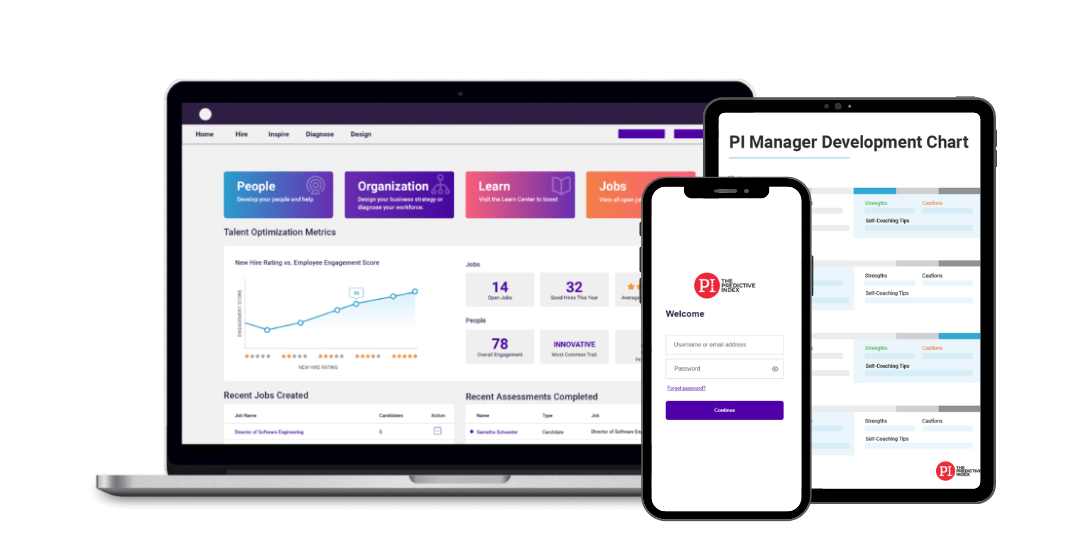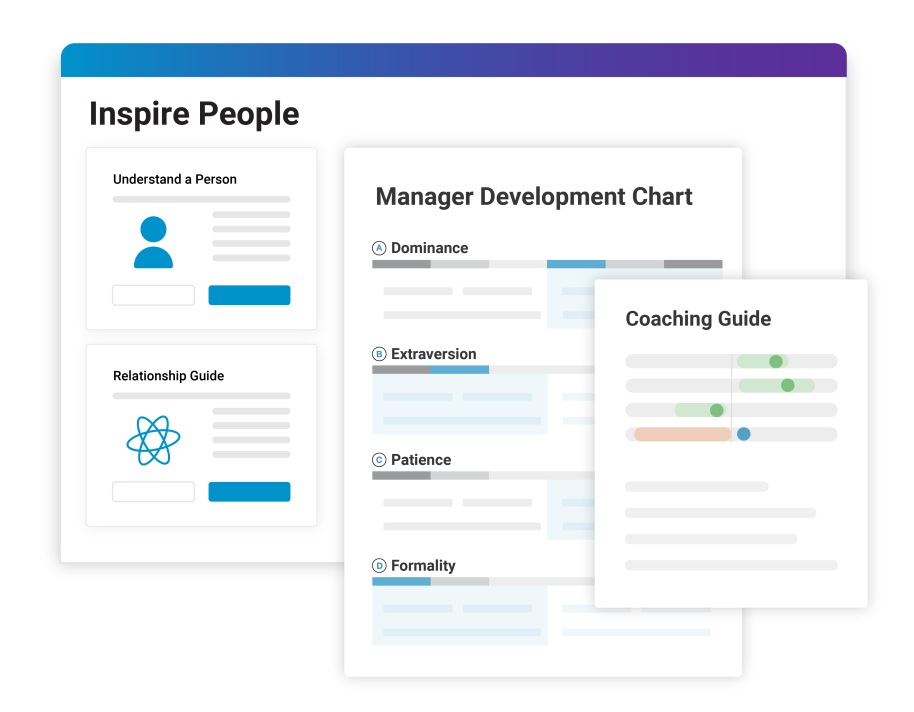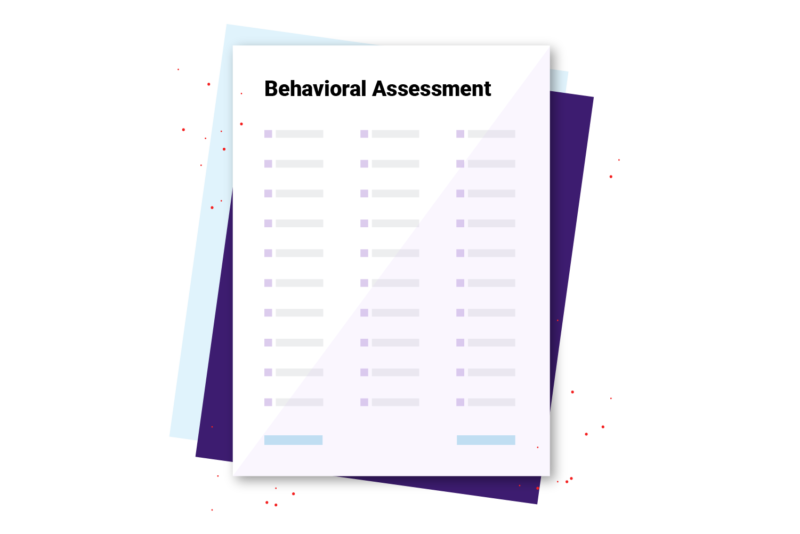Mastering Pre-Employment Testing to Find the Perfect Fit
By PSC Admin |
13 min read
Hiring the right talent is critical to the success of any organization. A single mis-hire can result in significant costs, including wasted time, lost productivity, and the expense of rehiring and retraining. Pre-employment testing has emerged as a powerful tool to mitigate these risks by providing objective data that can predict a candidate’s future job performance and cultural fit.
Pre-employment testing involves a variety of assessments designed to evaluate a candidate’s cognitive abilities, behavioral traits, and specific job-related skills. These tests offer valuable insights that go beyond what can be gleaned from resumes and interviews alone. For companies like Predictive Success, leveraging pre-employment testing solutions is central to helping businesses make informed hiring decisions that lead to better outcomes.
By integrating comprehensive assessments into the hiring process, companies can ensure that they not only select candidates who possess the necessary skills but also fit well within the organizational culture. This alignment is crucial for fostering a productive and harmonious work environment. Predictive Success’s suite of tools, including the PI Behavioral Assessment™ and PI Cognitive Assessment™, provides a robust framework for achieving these goals.
Understanding Pre-Employment Testing
Pre-employment testing is designed to provide an objective evaluation of a candidate’s suitability for a specific role. These tests typically fall into three main categories: cognitive assessments, behavioral assessments, and skills assessments.
- Cognitive assessments measure a candidate’s general mental ability, including problem-solving skills, logical reasoning, and the capacity to learn new information quickly. These tests are excellent predictors of job performance, especially for roles that require complex decision-making and critical thinking.
- Behavioral assessments evaluate a candidate’s personality traits and behavioral tendencies. Tools like the PI Behavioral Assessment™ help employers understand how a candidate might behave in various work situations, how they interact with others, and how well they fit with the company’s culture. This is crucial for roles that require teamwork, leadership, or customer interaction.
- Skills assessments are designed to measure specific job-related abilities. These can range from technical skills, such as programming or data analysis, to soft skills, like communication and problem-solving. By ensuring that candidates have the necessary skills for the job, employers can reduce training time and increase productivity from the outset.
The benefits of pre-employment testing are manifold. These tests provide a more complete picture of a candidate, reduce the likelihood of biased hiring decisions, and help in predicting job performance and employee retention. By integrating these assessments into the hiring process, companies can make more informed and effective hiring decisions.
Types of Pre-Employment Tests and Their Applications

Cognitive Assessments
Cognitive assessments are crucial in understanding a candidate’s ability to process information, solve problems, and learn new concepts. These assessments typically include tests for numerical reasoning, verbal reasoning, and abstract reasoning. For example, the PI Cognitive Assessment™ measures a candidate’s cognitive agility, which is essential for roles requiring quick decision-making and problem-solving skills.
Cognitive assessments are highly predictive of job performance, especially in complex roles. Research indicates that candidates with higher cognitive abilities tend to perform better in tasks that involve strategic thinking and adaptability. Therefore, integrating cognitive assessments into the hiring process can help identify candidates who are more likely to succeed in intellectually demanding roles.
Behavioral Assessments
Behavioral assessments, such as the PI Behavioral Assessment™, focus on identifying a candidate’s natural behavioral traits. These assessments provide insights into how candidates are likely to behave in a work environment, their interaction style, and their compatibility with the company culture.
For instance, a behavioral assessment might reveal that a candidate is highly detail-oriented and prefers structured tasks. This information is invaluable for roles requiring meticulous attention to detail, such as quality assurance or compliance. Conversely, a candidate who scores high on social interaction and persuasion might be ideal for sales or customer service roles.
Skills Assessments
Skills assessments measure specific job-related skills and competencies. These can be technical skills, such as software proficiency or mechanical aptitude, or soft skills like communication and teamwork. By directly evaluating a candidate’s ability to perform essential job functions, skills assessments ensure that new hires are prepared to meet the demands of their roles from day one.
For example, a coding assessment for a software developer position can test a candidate’s programming skills in various languages and their ability to debug and optimize code. Similarly, a customer service skills assessment might evaluate a candidate’s problem-solving abilities, empathy, and communication skills through simulated customer interactions.
By combining cognitive, behavioral, and skills assessments, employers can create a comprehensive profile of each candidate. This holistic approach helps ensure that new hires are not only capable of performing their job duties but also fit well within the team and organizational culture.
Implementing Pre-Employment Testing in Hiring Process

Integrating pre-employment testing into the hiring process involves several key steps to ensure it is effective and compliant with legal standards.
- Step 1: Define Job Requirements: Before administering any assessments, it’s crucial to define the specific requirements and responsibilities of the role. This includes identifying the cognitive abilities, behavioral traits, and skills that are essential for success in the position. The PI Job Assessment™ can help in this phase by creating a behavioral and cognitive benchmark for the role.
- Step 2: Select Appropriate Tests: Choose the tests that align with the job requirements. For example, roles that require complex problem-solving may benefit from cognitive assessments, while positions that involve significant teamwork may require behavioral assessments. Skills assessments should be tailored to the specific technical or soft skills needed for the job.
- Step 3: Administer Tests Consistently: Ensure that all candidates for a given role take the same assessments under similar conditions. This consistency is crucial for obtaining reliable and comparable results. Predictive Success’s tools provide an online platform where assessments can be administered and managed efficiently.
- Step 4: Interpret Results: Use the assessment results to gain insights into each candidate’s strengths and potential areas for development. The PI Cognitive Assessment™ and PI Behavioral Assessment™ provide detailed reports that highlight a candidate’s cognitive abilities and behavioral tendencies, helping hiring managers make informed decisions.
- Step 5: Combine with Other Hiring Criteria: Assessment results should be used in conjunction with other hiring criteria, such as resumes, interviews, and reference checks. This comprehensive approach ensures a well-rounded evaluation of each candidate.
- Step 6: Ensure Legal Compliance: It is essential to ensure that the testing process complies with all relevant employment laws and regulations. This includes ensuring that tests are non-discriminatory and that all candidates are treated fairly. Predictive Success provides guidelines and support to help companies navigate these legal considerations.
By following these steps, companies can effectively integrate pre-employment testing into their hiring process, leading to better hiring decisions and improved organizational outcomes.
Analyzing Test Results to Make Informed Decisions

Interpreting the results of pre-employment tests requires a systematic approach to ensure that the data collected is used effectively.
Interpreting Cognitive Assessment Scores
Cognitive assessments, such as the PI Cognitive Assessment™, provide a score that reflects a candidate’s general mental ability. Higher scores indicate greater cognitive agility, which is beneficial for roles requiring complex decision-making and rapid problem-solving. Hiring managers should compare these scores against the job requirements to determine if the candidate’s cognitive abilities align with the demands of the role.
Analyzing Behavioral Assessment Data
Behavioral assessments, like the PI Behavioral Assessment™, generate profiles that outline a candidate’s natural behavioral tendencies. These profiles help in understanding how a candidate might fit within the team and company culture. For instance, a candidate with a high degree of social interaction may thrive in a collaborative environment, while someone who scores high in autonomy might perform better in independent roles.
Evaluating Skills Assessment Results
Skills assessments provide direct evidence of a candidate’s ability to perform specific job tasks. Results from these assessments should be compared against the job’s technical requirements to ensure the candidate possesses the necessary skills. For example, a candidate for a technical role should demonstrate proficiency in the relevant software or tools.
Combining Test Results with Other Hiring Criteria
While test results provide valuable insights, they should be considered alongside other hiring criteria, such as interviews, work samples, and reference checks. This comprehensive approach ensures a holistic evaluation of each candidate. For example, a candidate who scores well on cognitive and behavioral assessments but performs poorly in interviews might need further consideration or a different evaluation method.
Using Data to Support Hiring Decisions
The objective data from pre-employment tests can support hiring decisions by providing evidence-based insights into a candidate’s potential performance. This reduces reliance on subjective judgments and helps in making more consistent and fair hiring decisions.
By systematically analyzing test results and combining them with other hiring criteria, companies can make more informed and effective hiring decisions, ultimately leading to better employee performance and retention.
Common Challenges and How to Overcome Them

While pre-employment testing offers numerous benefits, there are also challenges that companies must navigate to ensure effective implementation.
Potential Pitfalls in Pre-Employment Testing
One common challenge is the risk of biases in test design or administration. If not carefully managed, these biases can lead to unfair hiring practices and potentially discriminatory outcomes. For example, cognitive assessments might inadvertently favor candidates from certain educational backgrounds, while behavioral assessments might not account for cultural differences.
Strategies to Mitigate Biases and Inaccuracies
To mitigate these risks, it is crucial to use validated and reliable tests, such as those provided by Predictive Success. Ensuring that assessments are scientifically validated for their intended purposes helps in minimizing biases. Additionally, it is important to administer tests consistently and under similar conditions for all candidates to ensure fairness.
Ensuring Legal and Ethical Compliance
Another challenge is ensuring that pre-employment testing complies with legal standards and ethical guidelines. This includes adhering to regulations such as the Equal Employment Opportunity Commission (EEOC) guidelines in the United States or similar frameworks in other countries. Companies should also be transparent with candidates about the testing process and how the results will be used. Providing candidates with feedback and maintaining confidentiality of test results are essential practices to uphold ethical standards.
Tips for Continuous Improvement
Regularly reviewing and updating the pre-employment testing process is vital for continuous improvement. This includes analyzing the effectiveness of tests in predicting job performance and making necessary adjustments. Gathering feedback from hiring managers and candidates can provide valuable insights for refining the testing process.
By addressing these challenges proactively, companies can leverage pre-employment testing to make more informed and equitable hiring decisions.
Leveraging Predictive Success’s Pre-Employment Testing Solutions

Predictive Success offers a range of pre-employment testing solutions designed to help businesses make data-driven hiring decisions. These tools are integral in identifying the right candidates for the job while ensuring they fit within the company culture.
PI Behavioral Assessment™
The PI Behavioral Assessment™ is a scientifically validated tool that measures a candidate’s behavioral tendencies. It helps employers understand how a candidate might behave in various work situations, their interaction style, and their compatibility with the company culture. This assessment provides insights into a candidate’s drives, needs, and behaviors, enabling better alignment with job requirements and team dynamics.
PI Cognitive Assessment™
The PI Cognitive Assessment™ evaluates a candidate’s cognitive abilities, including their capacity to learn quickly, adapt to new situations, and solve problems. This assessment is particularly valuable for roles that require critical thinking and decision-making skills. By measuring cognitive agility, employers can predict how well a candidate will perform in complex and dynamic work environments.
PI Job Assessment™
The PI Job Assessment™ is a powerful tool for defining the behavioral and cognitive benchmarks required for specific roles. This assessment involves input from key stakeholders to outline the frequent and important tasks of a role. The resulting job target serves as a guide for evaluating candidates, ensuring that their profiles align with the role’s demands.
Talent Optimization Platform
Predictive Success’s Talent Optimization Platform integrates behavioral and cognitive insights with broader business processes. This platform allows companies to align their hiring strategies with business objectives, ensuring a cohesive approach to talent management. Features include visualizing candidate pipelines, aligning job expectations, and using fit-gap analysis to rank candidates.
Employee Engagement Tools
While primarily focused on pre-employment testing, Predictive Success also offers tools for measuring and improving employee engagement. The PI Employee Experience Survey™ and Diagnose Solution provide insights into employee engagement levels and help identify areas for improvement. These tools ensure that once hired, employees remain motivated and aligned with the company’s goals.
Real-World Applications and Benefits
Predictive Success’s tools have been successfully implemented across various industries. For example, the PI Behavioral Assessment™ and PI Cognitive Assessment™ have been used by TELUS Communications to streamline their hiring process, resulting in a cohesive and highly engaged team. Similarly, Scholars at Your Service reported an 80% improvement in manager retention and significant success among young entrepreneurs after adopting these assessments.
Client Testimonials
Numerous clients have praised Predictive Success for its impactful solutions. Fabio Aversa, Manager of Business Networks & Systems at TELUS Communications, noted the instrumental role of the Predictive Index in managing large-scale hiring efficiently. Chris Rasmussen, President & CEO of Doxim, highlighted how the system virtually eliminated mis-hires by better understanding job needs and matching candidates accordingly.
Success Stories
Documented success stories further illustrate the effectiveness of Predictive Success’s solutions. For instance, a multi-unit Subway franchise owner reported a significant reduction in turnover and substantial savings in training costs after implementing the Predictive Index. These real-world examples demonstrate the tangible benefits of integrating pre-employment testing into the hiring process.
By leveraging these comprehensive tools and solutions, companies can significantly enhance their hiring processes, ensuring they find the perfect fit for each role and fostering a productive and engaged workforce.
Conclusion: Pre-Employment Testing
Mastering pre-employment testing is essential for making informed hiring decisions that lead to long-term success. By incorporating scientifically validated assessments, companies can gain a deeper understanding of their candidates’ cognitive abilities, behavioral traits, and job-specific skills. This data-driven approach reduces the risk of mis-hires, improves team dynamics, and enhances overall productivity.
Predictive Success provides a robust suite of tools designed to streamline the pre-employment testing process. From the PI Behavioral Assessment™ and PI Cognitive Assessment™ to the Predictive Index Job Assessment™ and Talent Optimization Platform, these solutions offer a comprehensive framework for identifying and selecting the right candidates. Real-world success stories and client testimonials attest to the effectiveness of these tools in transforming hiring practices.
Incorporating pre-employment testing into your hiring process not only helps in selecting the best candidates but also ensures they fit well within your organizational culture. By making informed decisions based on objective data, you can build a high-performing and engaged workforce.
Take the next step in optimizing your hiring strategy by leveraging Predictive Success’s pre-employment testing solutions. Request a demo today to learn how we can help you find the perfect fit for your organization.
Further Reading
To deepen your understanding of pre-employment testing and its applications, here are some recommended articles:
- Free pymetrics Games Practice Test and a 2024 Prep Guide – This guide provides an overview of pymetrics games, which are pre-employment assessments designed to measure cognitive, social, and behavioral traits. The guide offers preparation strategies and tips for successfully taking these assessments.
Related Blogs
Top 20 Questions to Ask your Boss
Top 20 Questions to Ask Your Boss—Backed by The Predictive Index Whether you're stepping into a new role, joining a fresh team, or just aiming to build a stronger relationship with your current
What Are Leadership Best Practices?
Leadership Best Practices Relating to The Predictive Index: Insights from Predictive Success Effective leadership is the bedrock of any successful organization. Leaders are the visionaries who guide their teams, the decision-makers who drive change, and
What Is The Meaning of Emotional Capacity & How to Best Build It?
What Is the Meaning of Emotional Capacity & How to Best Build It? Emotional capacity is the ability to manage emotions effectively, understand the emotions of others, and remain resilient in the face of stress


